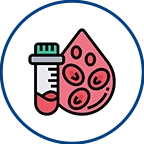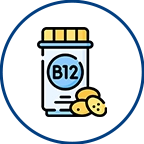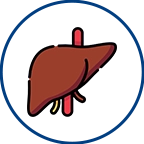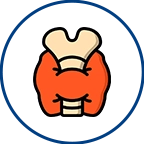TORCH Test A Comprehensive Guide on Procedure and Uses
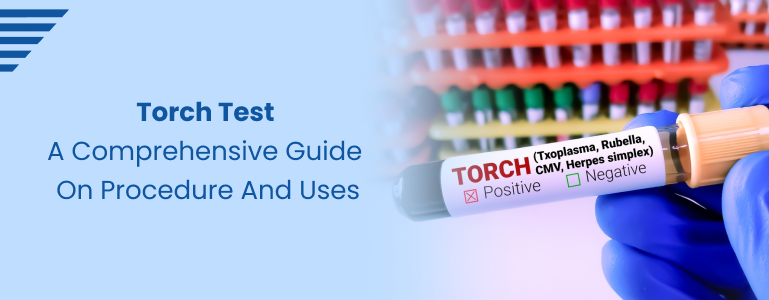
The TORCH test is a crucial diagnostic tool used in obstetrics and paediatrics. This panel of blood tests is designed to detect infections that can affect the health of pregnant women and their unborn babies. The TORCH test will be thoroughly explained in this blog post, along with its uses and the value of early identification.
What is the TORCH Test?
TORCH is an acronym representing a group of infections that the test screens for:
T: Toxoplasmosis
O: Other (syphilis, hepatitis B, and HIV)
R: Rubella (also known as German measles)
C: Cytomegalovirus (CMV)
H: Herpes Simplex Virus (HSV)
The TORCH test is typically performed during pregnancy but can also be done for newborns and individuals with suspected infections.
Home Sample Collection
Procedure for the TORCH Test
The TORCH test involves a simple blood draw and laboratory analysis:
Blood Collection: A healthcare provider will draw a small blood sample from a vein, usually in the arm.
Laboratory Analysis: The collected blood sample is sent to a laboratory for testing. The lab assesses the blood for antibodies to each of the TORCH infections.
Interpretation: The results will indicate whether the individual has been exposed to any of the infections and whether there are current or past infections. Performance may vary based on the specific antibodies detected.
Uses of the TORCH Test
The TORCH test serves several vital purposes in healthcare:
Prenatal Screening: During pregnancy, the TORCH test helps identify infections that can harm the developing fetus. This enables early intervention and treatment to minimize potential harm.
Assessment of Newborns: In some cases, the TORCH test may be performed on newborns if there are concerns about congenital infections that could have been passed from the mother during pregnancy.
Diagnosing Illness: In non-pregnant individuals, the TORCH test can diagnose infections like CMV, herpes, and toxoplasmosis, leading to serious health issues.
Evaluating Immune Status: The TORCH test can determine whether a person has immunity to certain infections, which is especially relevant for rubella and varicella (chickenpox) in women of childbearing age.
Importance of Early Detection
Early detection through the TORCH test is critical for several reasons:
Preventing Fetal Harm: Prompt treatment can help limit the possibility of congenital impairments or health issues if a pregnant woman is discovered to have a TORCH infection. It can also help lessen the likelihood of the illness being transmitted to the fetus.
Timely Interventions: Infant infection detection enables prompt treatment and medical care to control and treat potential health problems.
Management of Non-Pregnant Individuals: In non-pregnant individuals, identifying and treating TORCH infections can prevent complications and improve overall health outcomes.
Preventing Spread: For infections like syphilis, hepatitis B, and HIV, early detection can also help prevent further transmission to sexual partners or through childbirth.
Conclusion
The TORCH test plays a vital role in safeguarding the health of both pregnant women and newborns. This test enables early intervention and treatment by detecting infections that can have serious consequences, such as congenital disabilities or developmental issues. Whether used in prenatal care, newborn assessments, or diagnosing disorders in non-pregnant individuals, the TORCH test shows The value of early diagnosis and prompt medical attention in fostering healthy outcomes. If you are pregnant or have concerns about these infections, consult a healthcare provider to determine if a TORCH test is recommended for you or your child.
Frequently Asked Questions
What is the TORCH test, and why is it significant during pregnancy?
The TORCH test is a panel of blood tests that screen for infections that can harm pregnant women and their unborn babies. It is significant because it allows early detection and intervention to minimize potential risks.
When is the TORCH test typically performed during pregnancy?
The TORCH test is usually performed during the first or early in the second trimester as part of prenatal care. It may also be repeated later in pregnancy if there are concerns.
What infections does the TORCH test screen for?
The TORCH acronym represents a group of infections: Toxoplasmosis, Other (syphilis, hepatitis B, and HIV), Rubella (German measles), Cytomegalovirus (CMV), and Herpes Simplex Virus (HSV).
How is the TORCH test conducted?
The TORCH test comprises a quick blood draw in which a medical professional takes a blood sample from an arm vein. After that, the blood is sent to a lab for analysis.
What do the results of the TORCH test indicate?
The results indicate whether an individual has been exposed to any TORCH infections and whether there are current or past infections. Interpretation may vary based on specific antibodies detected.
Why is early detection through the TORCH test essential for pregnant women?
Early identification makes it possible to treat and control infections quickly, lowering the chance that the fetus may contract them and reducing the danger of congenital illnesses or impairments.
Can the TORCH test be conducted on newborns?
Yes, the TORCH test can be performed on newborns if concerns about congenital infections could have been passed from the mother during pregnancy.
Are there specific treatments available for TORCH infections during pregnancy?
Depending on the infection, there may be different treatment choices. In some cases, antiviral medications or antibiotics may be prescribed to manage or reduce the impact of the disease.
Can non-pregnant individuals undergo the TORCH test?
Yes, the TORCH test can diagnose infections like CMV, herpes, and toxoplasmosis in non-pregnant individuals, leading to serious health issues if left untreated.
How can individuals determine if they need the TORCH test?
To discuss if the TORCH test is required, speak with your doctor, especially if you're pregnant. It is recommended for those at higher risk or concerned about potential infections.
Book Your Slot
Our Locations Near You in Hyderabad
3KM from Banjara Hills
1.9KM from Yusufguda
3KM from Madhura Nagar
5KM from Shaikpet
Profiles
- Cardiac Risk Profile
- Pituitary marker Profile
- Rheumatoid Arthritis Profile
- Dengue Fever Panel
- Lung Cancer Panel 1 Complete Molecular
- Gastroenteritis Screening Panel
- Thyroid Profile (T3,T4,TSH), Serum
- Pancreatic Marker Profile
- STD profile
- Androgen Profile
- Lipid Profile, Serum
- Pancreatic(acute)Profile
- PCOD Profile
Radiology
Pathology Tests
- Glucose Fasting (FBS),Sodium Fluoride Plasma
- Creatinine, Serum
- Glycosylated Hemoglobin (HbA1C)
- Vitamin B12 (Cyanocobalamin), Serum
- Thyroid Stimulating Hormone (TSH) Ultrasensitive, Serum
- Complete Urine Examination (CUE), Urine
- Liver Function Test (LFT),Serum
- Dengue (IgG & IgM), Serum
- Dengue Antigen (Ns1) Rapid, Serum
- C-Reactive Protein (CRP), Serum
- Widal (Slide Method), Serum
- Total IgE, Serum

